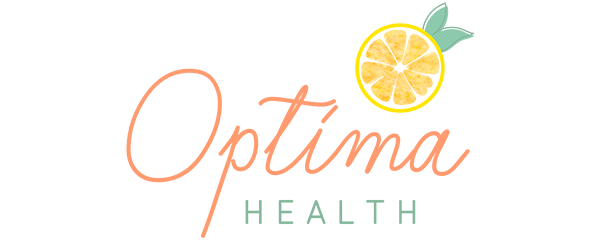Whether you’re a student studying for your final exams or at work trying to meet a deadline, the following tips and tricks will be useful to all.
 First things first, the brain relies on glucose for ALL its energy. Hence, without sufficient carbohydrates, our brain will not be functioning efficiently.
First things first, the brain relies on glucose for ALL its energy. Hence, without sufficient carbohydrates, our brain will not be functioning efficiently.
What exactly is a carbohydrate you may ask…?
The common answer to this question is bread, pasta, rice, potatoes, cereal….and so on. In fact, fruits and vegetables are also carbohydrates and so are peas, beans and certain milk products. Carbohydrates are commonly known as sugars and starches.
There are two main types of carbohydrates:
| Simple carbohydrates | Complex carbohydrates |
| Refined carbohydrates that are digested much quicker. | Pack more of a nutritional punch and are digested much slower. |
| Eg.
Potato White rice/pasta Biscuits Cake Lollies |
Eg.
Sweet potato and other starchy vegetables Wholegrain rice/pasta Legumes e.g. peas and beans Nuts/seeds |
For general health maintenance, it is always best to choose complex carbohydrates over simple carbohydrates as the latter provide little nutritional value (lacking in fibre, vitamins and minerals). Complex carbohydrates pack much more of a punch when it comes to nutrition than their simpler friends. Whilst they use the same building blocks as simple carbohydrates, the chains of complex carbohydrates are much longer and therefore take longer to be absorbed and digested, having much less of an impact on our blood sugar levels, keeping us fuller for longer and our brain more engaged. This is of particular importance during exam times. On the contrary, if you choose simple carbohydrates when your brain is reliant on maximum fuel, you will experience blood glucose fluctuations and therefore, the brain will not be functioning at its best.
Here are my top tips to optimising brain function during exams and/or the work day:
Never skip breakfast.
Eating breakfast refuels the brain through the provision of an immediate source of energy after the overnight fast. In order to optimise brain function and overall energy and performance, always consume a balanced breakfast that includes all the major food groups – a source of quality wholegrain carbohydrate/s, a source of quality protein and a source of quality fat. Of course, if you can get a serve of fruit and/or vegetables in there too, that is extra points to you!
This goes for every meal of the day too. Never skip a day time meal and if required, top up your energy with nutrient dense snacks in between.
Choose wholefoods over processed food.
Like I touched on above, simple carbohydrates found in processed foods provide the brain with little ammunition when it comes to exam time. Hence, it is always best to stick to wholefoods as they provide the body with a slower release of glucose (energy) and therefore, continual brain fuel and better concentration.
Get in lots of colour.
Fruits and vegetables of varying colours provide important antioxidants that support the brain. Antioxidants help neutralise or inactive free radicals, molecules that can damage cells including brain cells, if left to run a muck. Some examples of antioxidants in vegetables include vitamin C and E and beta-carotene. By mixing up your fruit and vegetable intake each day/week, you will expose yourself to different nutrients.
Opt for omega 3 rich foods.
Adequate consumption of omega 3s ensures adequate cognition and nerve functioning, both of which are important during exam time and the work day. Omega 3s are found in oily fish e.g. sardines, salmon, herring, mackerel, chia seeds, hemp seeds, ground flaxseeds and algal products. Once consumed, humans convert omega 3s into longer chain fatty compounds called eicosapentaenoic acid (EPA) and docosahexaenoic acid (DHA), of which offer an array of health benefits.
Opt for foods rich in iron.
The brain requires adequate iron to function optimally. So much so, that one of the major symptoms of iron deficiency is brain fog! Iron is required to transport oxygen around the body and build red blood cells. The brain requires oxygen, hence why it is important to ensure nutritional adequacy for this mineral. For more on iron rich foods, check out this post.
Opt for foods rich in choline.
Choline helps the body process nerve signals between the brain and the muscles. It is also useful in enhancing memory, concentration and promoting clearer thinking. Choline rich foods include eggs, salmon, liver, milk, beef, chicken, cauliflower and legumes.
Ensure adequate hydration.
The average human body is composed approximately 70% water. This water supply is highly important in just about every bodily process from digestion and absorption to circulation and excretion. The body is so reliant on water that even a touch of dehydration can result in a disruption to these normal processes of the body. Water needs are different for every individual. Remember, the more active you are, the more water you must consume to keep your body’s water levels in balance. Most people need around 8-10 glasses daily. Clear soups and herbal teas also count towards this goal.
Move for 30 minutes.
We know movement is great for us physically, but it is also fabulous for our mental health too. In fact, it is a great way to take a break from the desk and regroup before your next study session. Research also shows that a short walk amongst the trees in nature can boost your short term memory by up to 20%! So gather your friends and family and/or your fluffiest pal and make it a thing!
Ensure regular short breaks.
Aim for a break every hour. Take a short walk or do some stretching to help clear the mind.
Ensure regular, quality sleep.
Sleep enhances our mood, it repairs the body, it reduces stress levels and helps re-energise the brain for the next day. Try and formulate a regulate sleeping pattern by going to bed at the same time each night and waking at a similar time each morning.
Don’t overdo the stimulants.
Caffeine in excessive amounts actually does more harm than good. Yes, it acts as a mild stimulant for the brain, leaving us feeling more alert and on task, however, these levels will eventually fall. It can also exacerbate the stress response and it also disturbs our sleep patterns and can inhibit healthy food choices. If you must have caffeine, stick to one coffee in the morning. Herbal tea are better options for a refreshing pick me up, without the added effects of caffeine.
Want some more specific guidelines? Here are some meal/snack ideas to help fuel your brain:
Note: It is always best to opt for familiar food on the day of your exam.
Breakfast:
- 1-2 eggs on wholegrain toast with a little avocado and a side of mushrooms/spinach/tomato/beans etc.
- Porridge made with rolled oats and topped with a serve of fruit and some nuts/seeds.
- Chia pudding made with unsweetened plant-based milk, topped with a serve of fruit and some nuts/seeds.
- Muesli (ideally homemade or low in sugar) with quality Greek yoghurt.
- Fritters/frittata/zucchini slice
- Healthy pancakes – see this recipe
- For more ideas – see this post
Lunch/Dinner:
- Bowl of nutritious veggie soup with 1-2 slices of wholegrain toast with avocado.
- 1-2 eggs on wholegrain toast with a little avocado and a side of mushrooms/spinach/tomato/beans etc.
- Stir-fried vegetables with a serve of brown rice/quinoa and some protein.
- Salad topped with salmon, mackerel, trout, tuna, sardines etc/chicken/lean meat.
- Wholegrain wrap/sandwich with salad and a protein source.
- Pre-cooked brown rice with a tin of fish and some warmed frozen mixed vegetables/sautéed greens/salad.
Snacks:
- Handful of raw nuts/seeds with a piece of fruit.
- Slice of toast/crackers with avocado and a boiled egg.
- Hummus with crackers/veggie sticks
- Muesli (homemade or low sugar) with quality Greek yoghurt.
- Bowl/Cup of veggie-packed soup.
